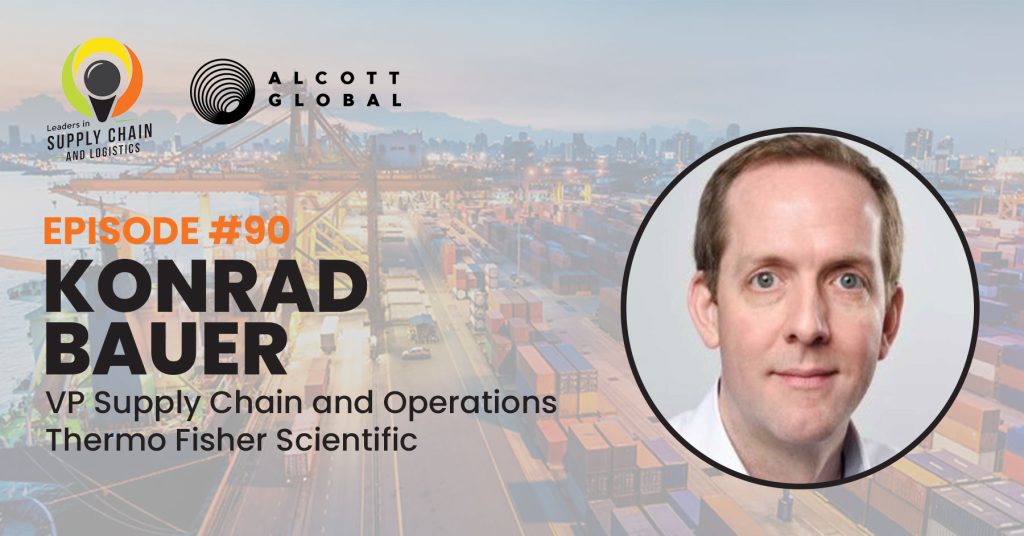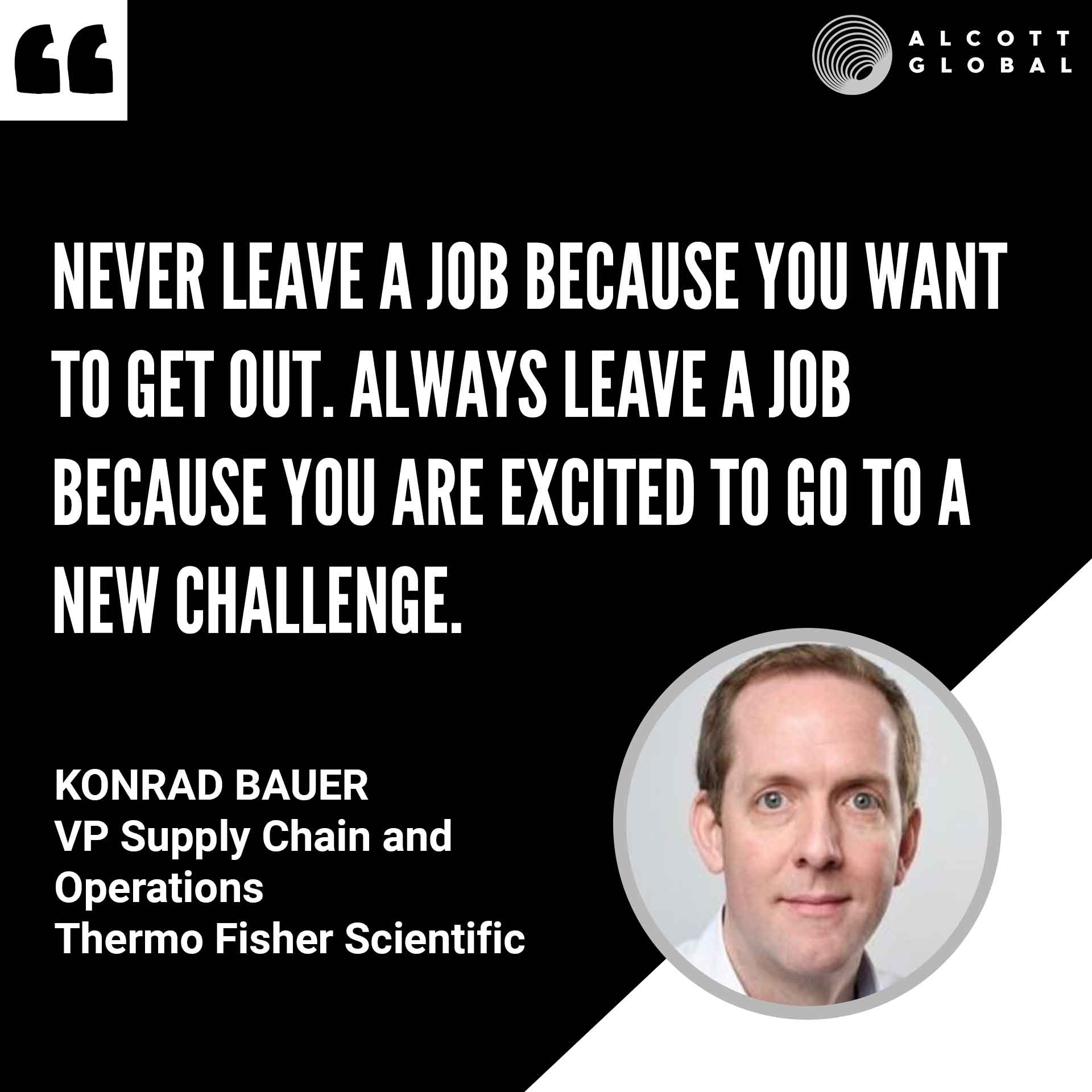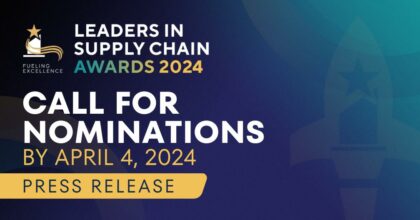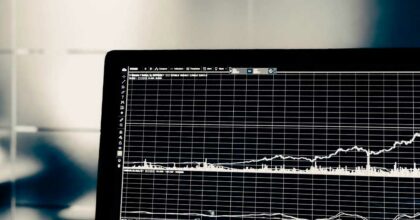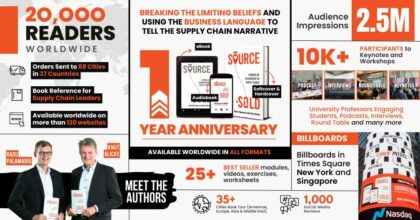Konrad Bauer is the VP Supply Chain and Operations at Thermo Fisher Scientific. Thermo Fisher Scientific is the global leader in providing, equipment, software, services, and consumables to help scientists solve problems across a multitude of fields: pharmaceutical, biotechnology, academic, government, environmental, and industrial research, as well as the clinical laboratory. With a revenue of more than 25n billion USD.
Listen to the full discussion here:
- Listen on Stitcher
Connect with the Guest:
Konrad Bauer: LinkedIn
Some of the highlights from the podcast:
- How Konrad moved from the industry into consulting at McKinsey and then back into the industry – and what challenges he faced
- The impact of the COVID-19 to Thermo Fisher’s operations
- How to instill a mindset of focus on serving the customer
- Planning where and how to build consistency inside the organization
- Supply chain outsourcing – will it be happening more?
- Career advice: Never leave a job because you want to get out. Always leave a job because you are excited to go to a new challenge
Show notes:
- [00:50] Let’s first start with your personal journey in supply chain: you started in Deutz (which is a German motor manufacturer). Then you spent 10 years at McKinsey and subsequently, you moved to Bayer and now to Thermo Fisher. I want to ask you on the move to consulting and from consulting and how to best navigate it?
- [04:27] One of the best advice my first boss at Deutz gave me is you never should leave something because you want to leave. You always should leave because you want to go somewhere.
- [06:09] What has driven me was the strive to say, I want to do something by myself self and I want to see it through. And that’s what kept me on board to basically stay in the industry and then change.
- [07:27] What are some of the main challenges that you have in Thermo Fisher when it comes to managing supply chain and operations in such a complex environment?
- [10:27] What are some of the major changes that you have made in the last six or nine months around your supply chain and operations to make sure that the supply chain working well given all these disruptions and unforeseen consequences of the global pandemic?
- [14:30] You have to get everybody to the mindset of not going to chase forecast accuracies or forecast bias. Let’s chase what is actually the right number to serve our customers and to serve the markets.
- [17:00] Did you manage to pass some of the logistics costs onto the client?
- [19:29] How do you also manage to maintain consistency in such a complex business across your many different products and many different business units?
- [22:49] Think through about what your trade-off is and what is the modern technology offering you, and then see you create a plan out of there and where to build consistency and how to do it. Instead of just saying standardization for the sake of standardization, because that has not proven to be a good business decision in the past and still not.
- [24:14] Have you in Thermo Fisher implemented some new projects or did you embark upon new initiatives in this realm of digital transformation that you managed to see through during these last 6 to 9 months?
- [26:29] Is Thermo Fisher doing anything to recalibrate or rearrange or even move some manufacturing from certain parts of the world to other parts of the world? Or is it still kind of a wait and see a little bit for you guys or what’s the situation?
- [29:05] Do you see outsourcing of supply chain happening more because COVID has kind of shown people that it can be done remotely, or what’s your perspective?
- [32:18] There’s going to be a trend to build more planning hubs, but I think the second trend after that is you’re gonna do higher levels of automation. And the role of the planner is going to change from just transactional to more oversight.
- [34:34] Looking back, would there be one or two pieces of advice that you would share with our listeners to fast track their careers?
- [35:27] To change and to be successful, you need to be curious and try for yourself. Don’t always expect somebody else to hand you something because that’s not going to happen.
- [37:26] First, go for what you need and not because you want to leave something. Secondly, be open and curious and learn for yourself. Third, be clear on what is driving your energy and where you take your energy from.
Quote from the Episode:
About the Host:
The host, Radu Palamariu is the co-author of “From Source to Sold – Stories of Leadership in Supply Chain”. He has been named one of the top 3 Global Supply Chain Influencers on LinkedIn and was featured in Forbes, Bloomberg, WEF, Bangkok Post, and MIT Supply Chain Talent magazine. Radu invites executives to share stories and perspectives around technology, logistics, e-commerce, supply chain, and manufacturing, and their views on how the future will look.
Alcott Global connects and upgrades the supply chain ecosystem by finding the right talent through executive search, developing talent through learning solutions, and meeting supply chain technology needs through a comprehensive crunch base marketplace.
The supply chain executive search has been our focus since the very beginning, offering recruitment services for top-tier supply chain roles at every level of the end-to-end supply chain: plan, source / procure, make, and deliver. Our consultants have years of experience in placing top talent, in North America, LATAM, Europe, the Middle East & Africa, and APAC, and besides speed, one of our biggest strengths is our network within the supply chain industry, and we capitalize on it to find the best solutions.
Through the years, we have grown as an organization and our offerings with it. One of our initiatives, the learning solutions- training and supply chain academy, is focused on transforming leadership- self-leadership, executive presence, influence capital, and business acumen. Through Supplify, we aim to match corporations with the top technology companies to solve their supply chain and logistics challenges with a focus on innovation and digital transformation.
We are in constant touch with the leaders in supply chain, inviting them to inspire the supply chain professionals in thought-provoking podcast episodes and events, and showcasing what is possible at the yearly Leaders in Supply Chain Awards.
Related Episodes:
#85: Hannah Kain CEO and Founder of ALOM
#86: Maria Villablanca Co-Founder and CEO of Future Insights Network

